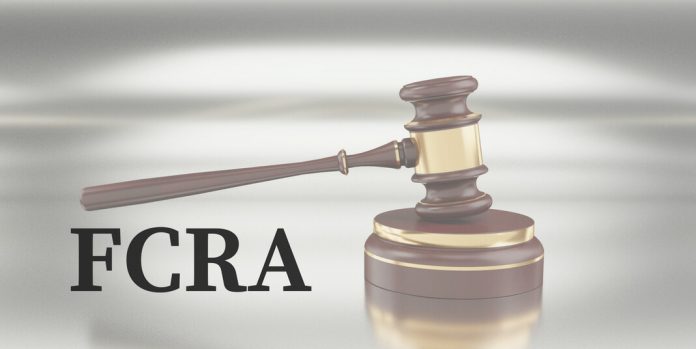This article is written by Karan Jayesh Shah, pursuing a Diploma in Advanced Contract Drafting, Negotiation and Dispute Resolution from Lawsikho.com. Here he discusses “Legal Framework Regulating Foreign Contribution To Start-ups In India”.
Introduction
Start-ups in India are governed by multiple laws. Compliances to the regulation and procedure are must and non-compliances would attract heavy penalties. Start-ups are the future and backbone of the Indian economy. It can be incorporated in various forms such as a company, partnership firm, one person company, limited liability partnership etc.
The Government of India has come up with a comprehensive policy on encouraging start-ups in India through various policies and regulations like Foreign Exchange Management (Borrowing or Lending in Rupees) Regulations 2000, Foreign Exchange Management (Borrowing or Lending in Foreign Exchange) Regulations 2000, Foreign Exchange Management (Transfer or Issue of security by a person resident outside India) Regulations 2000 of the RBI, The foreign direct investment (FDI) policy issued from time to time by the Department of Industrial Policy and Promotion (DIPP), etc.
Foreign Contribution (Regulation) Act, 2010
The FCRA, 2010 is an Act of the parliament of India and has come into effect from May 1, 2011. The Purpose of the Act is to regulate the acceptance and utilisation of foreign contribution and foreign hospitality in certain cases. The Act comprises of nine chapters with 54 sections and is applicable to whole of India and even to citizens of India outside India.
It is true that many political parties in India get financial support from foreign country. Sometimes, the support is obtained through some social or apparently non-political organisation. It is also true that some countries provide contribution or hospitality to person at senior level, so that these persons can look after interest of these countries in India. Obviously, this is not in the interest of nation and hence the purpose of the act is to prevent such contribution and hospitality at high places.
The Ministry of Home Affairs has also issued a Gazette Notification dated the 29th April, 2011 notifying the Foreign Contribution (Regulation) Rules, 2011 made under section 48 of FCRA, 2010.
Foreign Contribution [Section 2(1)(h)]
Foreign Contribution means the donation, delivery, or transfer made by any foreign source,–
- of any article excluding any article given as a gift for personal use and value of the gift does not exceed then what may be specified from time to time by the Central Government;
- of any Currency; and
- of any foreign security
The following are the exception that will not be covered under the definition of foreign contribution:
- Receipt of fees to be paid to universities or institutions;
- Payment for cost of goods and services; (in the ordinary course of business)
- Money received as an agent of foreign source in India.
Salient Features of the Act
- Permission granted as per the old act will be valid for the period of five years after the enactment of newly Foreign Contribution Regulation Act, 2010.
- Many provisions of the repealed FCRA, 1976 are incorporated in the newly enacted act .i.e. FCRA, 2010.
- A company engaged in the Information broadcasting and political organisations have been placed in the category prohibited to accept foreign contribution.
- The Person who has the right to receive foreign contribution can’t transfer it to another person who is not authorised or have the right to receive the contribution as per the FCRA, 2010.
- The Foreign Contribution must be utilised only for the purpose for which it has been received and 50% of the contribution can be used for administrative expenses and above that with the permission of the central government.
- In the newly enacted Act, the provision for suspension and cancellation of the registration granted to organisation, association or company for violation of the provisions of the act and rules is given. In the repealed act, provision for above mention point was not given.
- Under the newly enacted Act, the registration certificate will be valid for the period of 5 years for accepting the foreign contribution and must be renewed within 6 months before the expiry of the period of the registration certificate and under the repealed act there were no provisions for the time limit of the registration certificate.
- A separate account shall be maintained by the company and no fund other than foreign contribution shall be deposited in that account and it is the duty of the bank to submit periodic report of the account to the concerned authority.
- Provisions for maintaining the account as per the law is given and non-compliance or failure to furnish the account for inspection would attract retribution.
- Any person, who knowingly and intentionally give false imitation or statement and seeks registration by means of fraud, misrepresentation, shall be liable to imprisonment for a term which may extend to six months or fine or with both.
Salient Features of the Rules
- The Foreign Contribution (Regulation) Rules, 2011 have defined the activities that need to be treated as speculative activities.
- The Rules have also specified expenditure, which amounts to “Administrative Expenses”.
- Procedure for submission of application for obtaining registration or prior permission to receive foreign contribution has been given in detail.
- The submission of application fee for obtaining registration or prior permission for receiving foreign contribution would be Rs. 2000/- and Rs. 1000/- respectively.
- Any pending application under the repealed act shall be deemed to be an application made under the new rules, subject to payment of the prescribed fee.
- A separate set of accounts and records, shall be maintained by the person who has been granted registration or prior permission for the receiving and utilisation of foreign contribution.
- The certificate of registration shall be valid for the period of 5 years for accepting the foreign contribution and must be renewed within 6 months before the expiry of the period of the registration certificate.
- If the certificate of registration is cancelled then the amount of foreign contribution lying unutilised in the person’s account would vest with the bank authority till the central government issue further directions.
Foreign investment: Compliance under the Reserve Bank of India/ Foreign Exchange Management Act
India after liberalizing and globalizing the economy to the outside world in 1991, witnessed an enormous increase in the flow of foreign direct investment. The Government of India took the task of transforming India into a manufacturing power through the ‘Make in India’ campaign launched on September 25, 2014. A national program designed to facilitate investment, foster innovation, enhance skill development, protect intellectual property and build best-in-class manufacturing infrastructure.
There are two routes to Foreign Direct Investment (FDI), namely, Government Route where the prior approval of Reserve Bank of India, concerned ministries/ authorities/ department and Central Government via a single window – Foreign Investment Facilitation Portal (FIFB) administered by the Department of Industrial Policy & Promotion (DIPP), Ministry of Commerce and Industry, Government of India is required and carried out and Under Automatic Route there is no need to get the permission of Reserve Bank of India. However, Individuals or entities of Bangladesh and Pakistan can invest only through Government Route only.
Apart from the specified 17 sectors viz. Defence, Food Product Retail Trading, Satellites- establishment and operation, Telecom Services, Pharmaceutical – Brownfield, Banking- Private and Public Sector, Private Security Agencies, for which Government approval is mandatory, DIPP will have the responsibility to identify the concerned authority applicable to particular application, where the applicable ministry is in doubt. DIPP also handles the proposals from the Export Oriented Units and NRIs applications relating to issues of equity for import of capital goods/equipment, pre-operative/pre-incorporation expenses, etc.
Subject to conditions and sectoral caps on ownerships, various categories of foreign investors like Foreign Portfolio Investors, Foreign Institutional Investors, Foreign Venture Capital Investor, and Non-Resident Indians can hold stakes in Indian business entities.
FDI is a capital account transaction and any violation of its regulations attracts penal provisions under FEMA. RBI administers FEMA and Directorate of Enforcement, Ministry of Finance – Government of India has the authority to investigate in case of any violation of its rules.
Concerned Administrative Ministries/Department/Authorities
The sector that falls under the Government Route needs the approval for foreign investment under the present FEMA Regulations and FDI Policy from the concerned ministries, department, and authorities applicable to them.
- Ministry of Mines;
- Department of Defence Production, Ministry of Defence;
- Ministry of Home Affairs;
- Ministry of Information and Broadcasting;
- Ministry of Civil Aviation;
- Department of Space;
- Department of Telecommunications;
- Department for Promotion of Industry and Internal Trade;
- Department of Economic Affairs;
- Department of Financial Services;
- Department of Pharmaceuticals.
Conclusion
In the wake of the emergency in 1970’s the Foreign Contribution Regulation was enacted in 1976. The legal framework pertaining to Foreign Contribution has gone through various changes since its inception in 1976. The FCRA, 2010, not only regulates the acceptance of foreign contribution but also lays down regulations for its utilisation. It defines foreign contribution under section 2(h) of the Act by means of donation, delivery or transfer by any foreign source of any articles, currency or securities. The main objective of the contribution or the funds raised under FCRA is that it can be used for social activities and that it cannot be used for personal usage by the fundraisers.
Further, the regulation Act, 2010, mandates that the turnover of the NGO Etc. should be 10 lakhs which the entity should have spent in the last three years onto its aims, objectives and administration. Moreover, the legal framework regarding documents are stringent and requires the bank account to be linked with Public Financial Management system.
It prohibits acceptance of foreign contribution by any candidate for election, correspondents, columnist, cartoonist, editor, honour printer, publisher of a registered newspaper/agency, or any organisation or political parties and their office barriers, or members of any legislation association, or any company engaged in production or broadcasting of audio news or audio-visual news, or government servants under Section 3 of the FCRA, 2010. Reception of Foreign Contribution byways of wages, salaries or remuneration or by payment of ordinary course of business, or gifts are not covered under Section 3 and fall under the exception to Section 3.
Section 8 provides for regulations for utilisation of the foreign contribution by the foreign source and further, the Act provides for the Central Government to further regulate and prohibit the usage of the foreign contribution so received.
Section 14 empowers the Central Government to cancel or revoke the certificate upon its satisfaction of utilisation being against Public policy or on grounds of misrepresentation or fraud during application or for violation of laws of the land or for using the certificate for any other purpose than for which it was granted and such person/organisation would not be eligible to re-apply for certification for 3 years from the date of cancellation.
Endnotes
- Project finance in India: overview (November 10, 2019, 09:04 AM IST),
- Section 2 (1)(h) of the Foreign Contribution (Regulation) Act, 2010
- Salient Features of FCRA, 2010 Comes into Effect from May 1, 2011 (November 10, 2019, 7:20 PM IST),
- IBID
- Foreign investment: Compliance under RBI/FEMA (November 10, 2019, 10:20 AM IST),
- Doing Business in India (November 10, 2019, 11:30 AM IST),
- FDI Policy: Sectors where Government Approval is required (November 11, 2019, 9:30 AM IST)
Students of Lawsikho courses regularly produce writing assignments and work on practical exercises as a part of their coursework and develop themselves in real-life practical skill.
https://t.me/joinchat/J_0YrBa4IBSHdpuTfQO_sA
Follow us on Instagram and subscribe to our YouTube channel for more amazing legal content.
 Serato DJ Crack 2025Serato DJ PRO Crack
Serato DJ Crack 2025Serato DJ PRO Crack











 Allow notifications
Allow notifications


